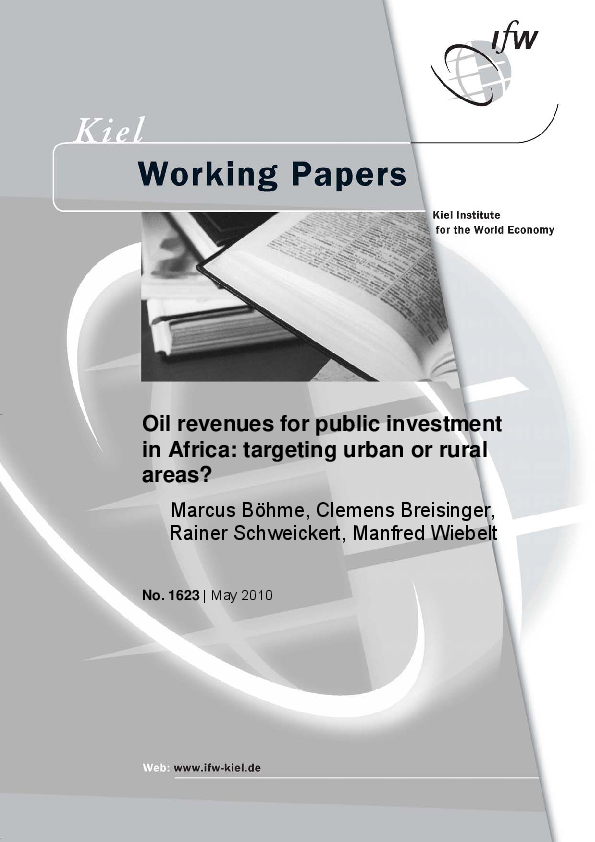Working Paper
Oil Revenues for Public Investment in Africa: Targeting Urban or Rural Areas?
Authors
Publication Date
JEL Classification
Key Words
This paper investigates the effects of oil financed public investment on poverty using a dynamic multisectoral general equilibrium model featuring inter-temporal productivity spillovers, which may exhibit a sector-specific and regional bias. In general, the results bear out the expectation that a surge of oil revenues leads to a real appreciation, distorting incentives which favor nontradable activities over export agriculture and manufacturing thereby increasing rural and national poverty. Whereas this result is familiar from other recent studies, the simulations show that beyond the short run, when conventional demand-side Dutch disease effects are present, the relationship between resource-rent flows and real exchange rates, output growth, and poverty is less straightforward than simple models of the "resource curse" suggest. Taking Ghana as a stylized agriculture-based economy with poverty most pronounced in a region with home biased agricultural production, a policy mix of smoothing the real exchange rate shock and an allocation of infrastructure spending in rural areas seems to be the most promising public investment strategy to enhance growth and reduce poverty.







